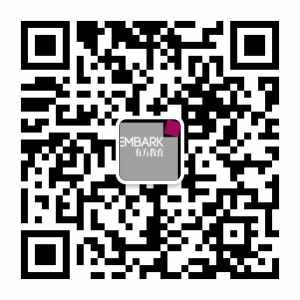- 翰林提供学术活动、国际课程、科研项目一站式留学背景提升服务!
- 400 888 0080
2019英特尔ISEF学科最佳作品摘要:系统软件 Best of Category Abstract: SYSTEMS SOFTWARE
获奖作品基本信息
| 年份 | 2019 |
| 学科 | 系统软件 SYSTEMS SOFTWARE |
| 国家/州 | Ireland |
获奖作品名称
Improved Gate Level Simulation of Quantum Circuits
获奖作品摘要
Quantum computers are a paradigm shift in computing. However, intermediate to large-scale quantum devices are not yet available. This has introduced a need for the fast, accurate simulation of quantum computers. There are novel and fast algorithms suitable for the simulation of quantum circuits. Still, these approaches are not always usable by researchers. There is also no clear way to decide on the best simulation method for a given circuit. This research addresses these issues. My software implements four methods of simulation. I developed a novel method for state vector simulation. Unlike current tools, this enables the use of both hardware acceleration and distributed systems. Near-Clifford, tensor network, and path integral simulation methods are also implemented. This allows simulation of circuits with a reasonably large number of qubits. To optimally choose the simulation method, a quantum circuit analysis procedure was developed. The analysis is based on computational complexity and heuristics. The use of this analysis procedure in conjunction with the simulation methods allows for the exploitation of the individual algebraic and topological properties of a quantum circuit. A statistical benchmark displayed a significant speedup over leading alternatives (p = .0017643). Simulating a 25 qubit quantum Fourier transform showed a 120x increase in speed. Experimental verification of the analysis method was also completed. The software I developed improves upon alternatives in terms of performance, methods, and utility. This allows researchers to perform simulations that would otherwise be intractable.
高中生科研 英特尔 Intel ISEF
资讯 · 课程 · 全程指导
请扫码添加微信好友

高中生科研学术活动 英特尔 Intel ISEF 简介
英特尔国际科学与工程大奖赛,简称 "ISEF",由美国 Society for Science and the Public(科学和公共服务协会)主办,英特尔公司冠名赞助,是全球规模最大、等级最高的中学生的科研科创赛事。ISEF 的学术活动学科包括了所有数学、自然科学、工程的全部领域和部分社会科学。ISEF 素有全球青少年科学学术活动的“世界杯”之美誉,旨在鼓励学生团队协作,开拓创新,长期专一深入地研究自己感兴趣的课题。
>>> 实用链接汇总 <<<
· 数学 · 物理 · 化学 · 生物 · 计算机 · 工程 ·
学科简介:系统软件 SYSTEMS SOFTWARE
The study or development of software, information processes or methodologies to demonstrate, analyze, or control a process/solution.
Subcategories:
Algorithms (ALG): The study or creation of algorithms - step-by-step procedure of calculations to complete a specific task in data processing, automated reasoning and computing.
Cybersecurity (CYB): Studies involving the protection of a computer or computer system against unauthorized access or attacks. This can include studies involving hardware, network, software, host or multimedia security.
Databases (DAT): Studies that create or analyze data organization for ease of access, management and update.
Human/Machine Interface (HMC): Software application that presents information to a user about the state of a process and to accept and implement the operator’s control instructions.
Languages and Operating Systems (LNG): Studies that involve the development or analysis of artificial languages used to write instructions that can be translated into machine language and then executed by a computer or system software responsible for the direct control and management of hardware and basic system operations of a computer or mobile device.
Mobile Apps (APP): A study involving a software application developed specifically for use on small, wireless computing devices. These studies may include front-end development techniques, such as user interface design and cross-platform support, and/or back-end development techniques, such as data services and business logic.
Online Learning (LRN): Studies that focus on utilizing electronic technologies to access educational curriculum outside of a traditional means. Studies explore the design of learning activities and programs with online technologies, as well as the effective use of e-learning systems.
Other (OTH): Studies that cannot be assigned to one of the above subcategories. If the project involves multiple subcategories, the principal subcategory should be chosen instead of Other.

早鸟钜惠!翰林2025暑期班课上线

最新发布
© 2025. All Rights Reserved. 沪ICP备2023009024号-1








